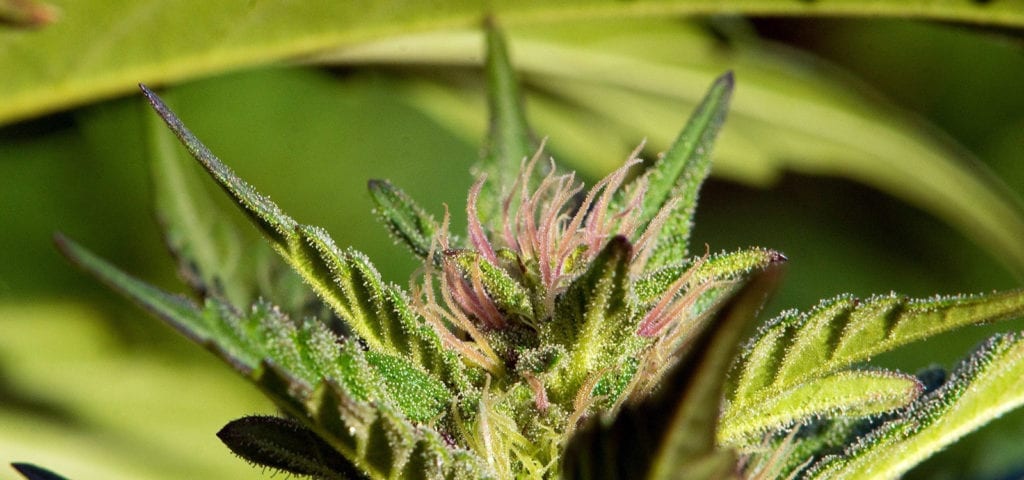Advocates in Michigan have renewed their bid to legalize cannabis for adult use after being shut out by politicians and courts in 2016 – and, according to MI Legalize Chairman Jeffery Hank, their proposal for 2018 is a “forward-thinking” initiative that draws on the “best practices” of other states.
MI Legalize has formed a coalition with MI NORML, the American Civil Liberties Union, the Marijuana Policy Project, and the Drug Policy Alliance for the 2018 campaign.
“It’s a pretty wide-open entry to the market,” Hank explained in an interview with Ganjapreneur, describing tenants of the plan allowing for four types of commercial cultivation licenses.
Under the proposal, four tiers of cultivation licenses allowing product sales are available to individuals 21-and-older: a single microbusiness license for 150-plant grows; and commercial licenses for 100, 500, and 2,000-plant grows, which businesses and individuals could hold up to five. The latter licenses would only be available to current licensed medical cannabis operators for the first two years, after which any other organization could apply.
The measure permits adults to possess up to 2.5 ounces of flower and 15 grams of concentrate in public, and 10 ounces of purchased flower within a home. Individuals would be permitted to grow up to 12 plants and possess the yield. The growing provision allows for outdoor cultivation out of public view and adults would be allowed to farm hemp without a state license.
The state’s medical cannabis regime would remain intact; however, consumer taxes would be dropped from medical sales. Recreational sales would carry a 10 percent excise tax, which, paired with Michigan’s 6 percent sales tax, brings the total taxes to 16 percent.
“We have provisions in the law to make sure that licenses are fairly distributed, particularly in communities that may have been disadvantaged in the past…think of the Detroit area,” Hank said. “We make sure those communities are included in the marketplace.”
Hank, an East Lansing-based attorney, said that the authors explored criminal justice reforms, such as expungement of old low-level possession charges, but after conferring with counsel determined that including such language could disqualify the petition as a whole because it would add a “second issue,” which is not allowed under Michigan’s ballot laws.
“We really wanted it in there – we really wanted it in there last year, too,” Hank said, adding that it “hurt” the petitioners to leave expungement out of the proposal. “We’re really sensitive this time to possible challenges because we had the state, basically, screw us last year with judicial chicanery.”
Last September, Michigan lawmakers passed sweeping legislation to reform the state’s “gray-market” medical cannabis industry – actually making the drafters’ job with the new adult-use proposal easier because state officials had already established some framework for cultivators, processors, transporters, dispensaries, testing laboratories, and transporters; including seed-to-sale tracking requirements. However, Hank said that ballot initiative also seeks to “correct” some of, what the coalition sees, as issues with the legislature’s reforms.
“We had to adapt to what the legislature did,” Hank said. “Also, last time the petition was drafted solely by MI Legalize…this time around we formed the coalition with those other groups so there was a bit of compromise, and give-and-take with the language, but we think we have put together the ‘new gold standard’ if you will.”
In order for the measure to qualify for the 2018 midterm election, petitioners need to gather 252,523 valid signatures – which for the campaign equates to “about 375,000 to 400,000” total signatures – within 180 days or by “October or November.” The 180-day rule was how the 2016 bid was pushed from the ballot. Right before the organizers handed in their petitions the legislature changed the law to add the 180-day signature collecting window. MI Legalize challenged the new rules but “didn’t get anywhere.”
“On June 7 – six days after we handed in our petition – the governor signed the law,” Hank said. “It was a crazy political battle – the state saw us succeeding getting marijuana on the ballot. They not only suppressed our petition but they actually changed the law to make it harder to petition. They removed the time we had to petition to make it more restrictive.”
In 2016, MI Legalize and their team of volunteers alone collected 379,000 signatures. Their newly-formed alliances have them confident that they will easily collect enough signatures within the 6-month window to succeed.
“We think we’re the first big state in the Midwest and if we go well then hopefully Ohio goes after that,” Hank said. “Hopefully these dominoes will finally fall.”
Get daily cannabis business news updates. Subscribe
End
